RECOMMENDED: Rubber Stable Mats
> 10ft Stable Pack (36 mats)
> 12ft Stable Pack (49 mats)
> 14ft Stable Pack (64 mats)
> Top-up Pack (6 mats)
The UK's Favourite Stable Mats and equestrian flooring!
> 10ft Stable Pack (36 mats)
> 12ft Stable Pack (49 mats)
> 14ft Stable Pack (64 mats)
> Top-up Pack (6 mats)
Equifloor UK – Fitting Guide (Rubber Stable Mats)
Download PDF 1.43Mb
TOOLS: Brush; Tape Measure; Chalk Line; Utility Knife; Straight Edge (at least 50cm long, 100cm preferred).
Equifloor solid rubber stable mats are suitable for stables with concrete, wooden and earth bases and they will adjust to uneven floors. However, we always advise getting the floor as flat as possible by checking for holes and cracks and filling with sand or a fine gravel, available from most DIY stores.
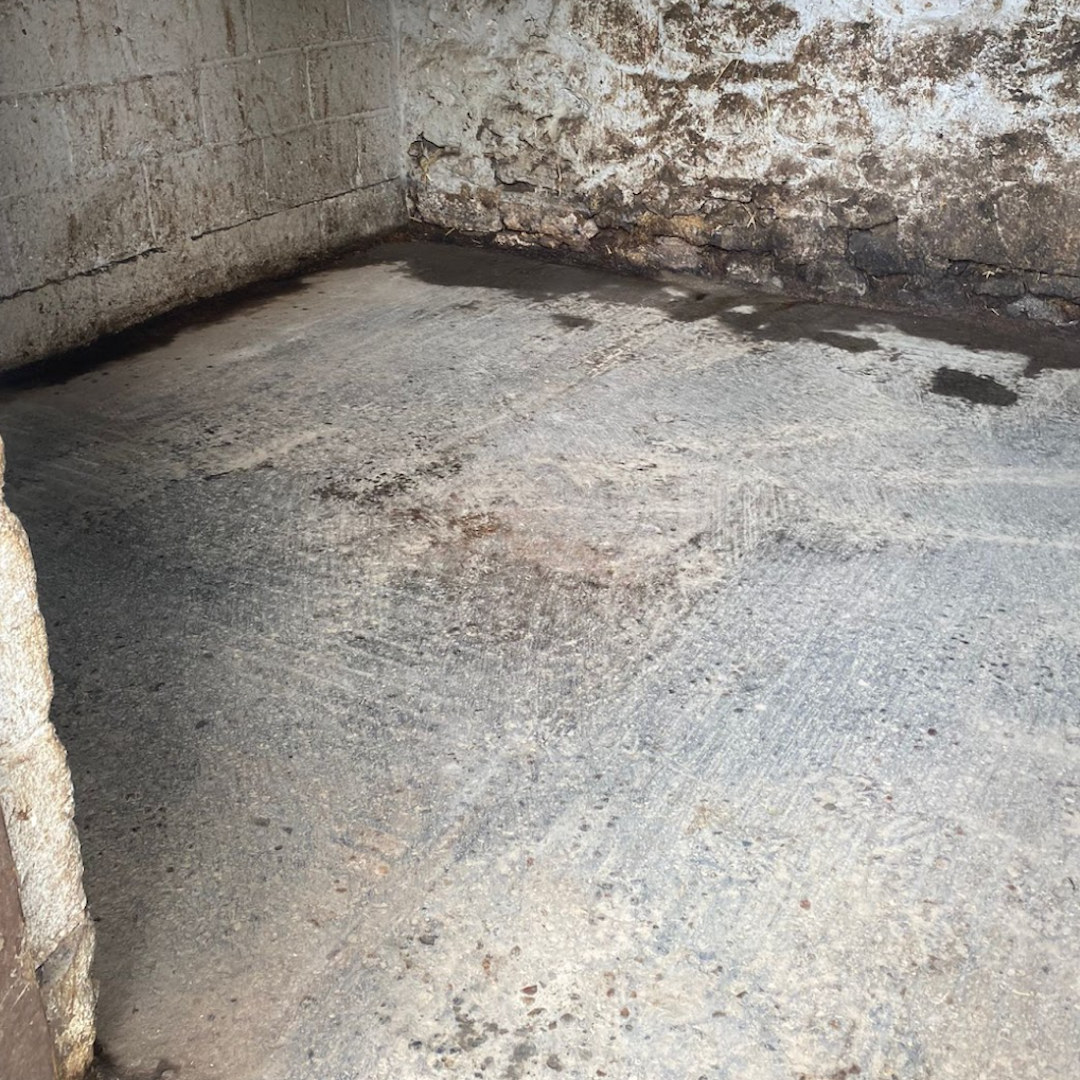
There are two main ways to lay Equifloor rubber stable mats. The front-to-back method is the slightly quicker of the two methods and will minimise the number of tiles that need to be cut to fit.
First, measure your stable width and depth. If you are using Equifloor rubber stable mats, they will measure 50cm x 50cm (for domestic stables) or 100cm x 100cm (for livery yards and equestrian centres).
If you are using tapered edge ramps in your stable, we recommend laying these first to ensure there is space for them at the entrance.
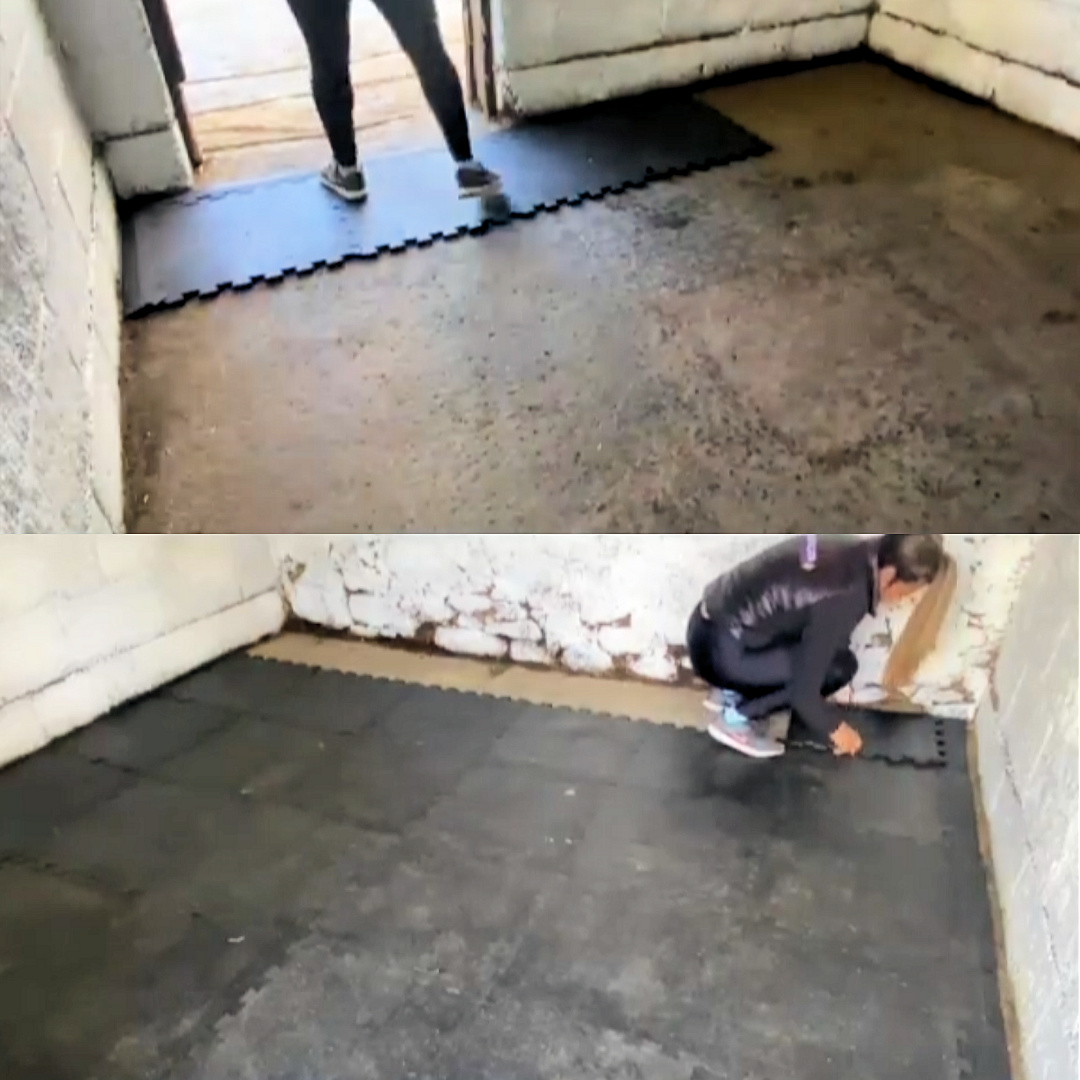
We advise starting at the front and fitting your mats either row by row (left to right) or column by column (back to front). This means that any cut tiles needed will be on two sides – the back wall and one of the side walls.
If you aren’t using tapered edge ramps we advise starting at the corner with the straightest edges, working your way across the floor area from there.
Again, measure your stable width and depth. If you are using Equifloor rubber stable mats, they will measure 50cm x 50cm (for domestic stables) or 100cm x 100cm (for livery yards and equestrian centres).
If you are using tapered edge ramps in your stable we recommend laying these first to ensure there is space for them along the entrance. From there, lay the rubber mats towards the opposite wall, working your way towards the back of the stable.
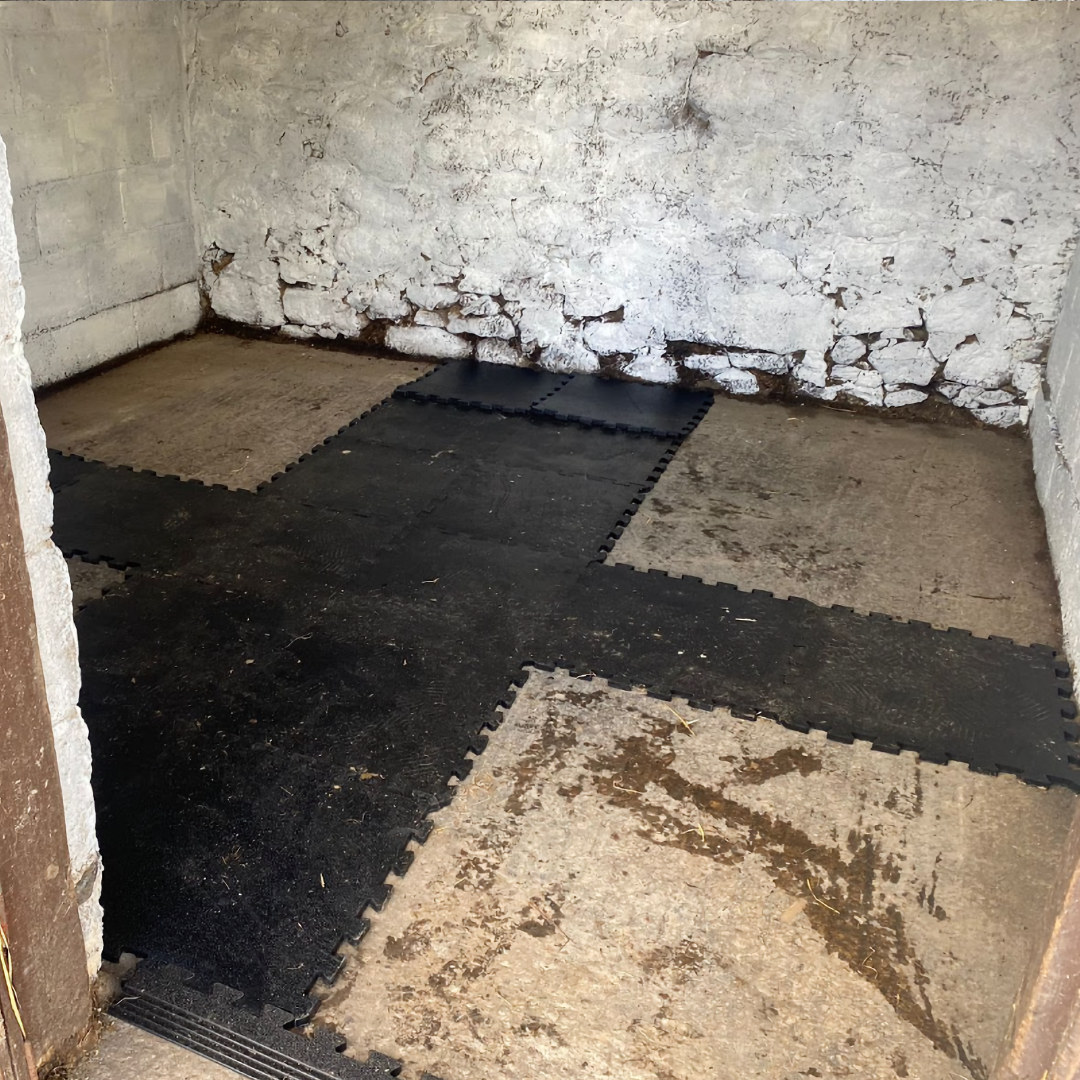
Once you have a complete line of tiles laid towards the back wall, find an approximate centre point. This ensures any mats that need to be trimmed to fit will only be on two sides, minimising the work needed.
If you aren’t using tapered edge ramps we advise starting at the corner with the straightest edges, working your way across the floor area from there.
To be on the safe side, we recommend leaving a half inch (1.2cm) gap around the edge of your floor area as the mats may expand/contract in extreme hot/cold temperatures.
Stable walls are often bowed and uneven. If you do need to cut your mats to fit the width of your stable, we recommend you do this by hand with the help of another person. Measure and mark the cut using a tape measure and a piece of chalk if you have them.
Use a guide such as a spirit level or plank of wood at least 50cm long (1 metre ideally) and place it along the width of the mat with the other person holding it securely in place.
Score repeatedly with a strong utility knife to make the cut (using safety gloves, of course!). To make cutting easier you can use a guillotine (as shown in the image) – but a common utility knife will do the job too.
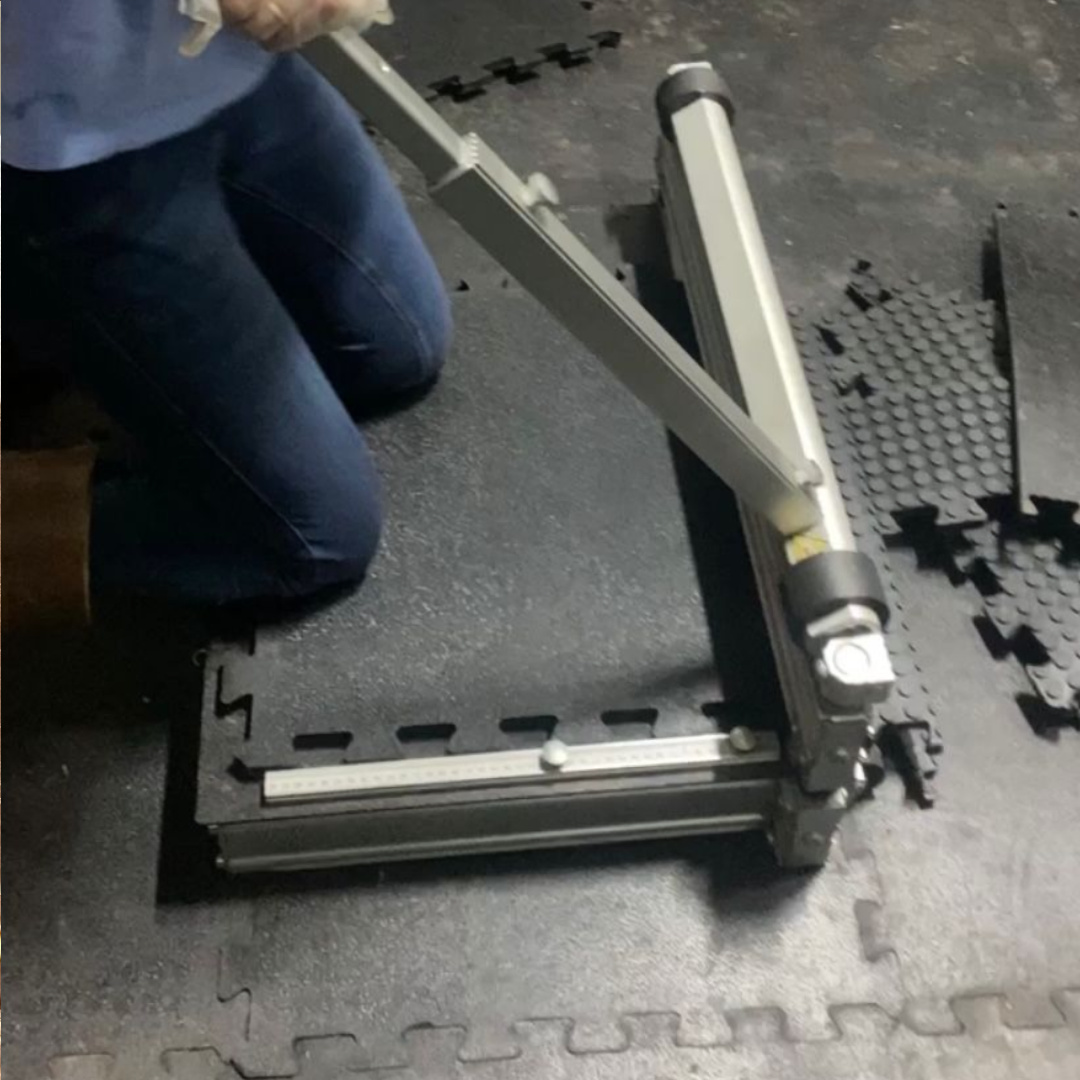
As discussed above, you may wish to finish off your stable floor with tapered edge ramps for a tidy finish that reduces the risk of any trip hazards. If you want to do this we advise starting with the ramps at the entrance point first to ensure that your mats will connect correctly to the ramps.
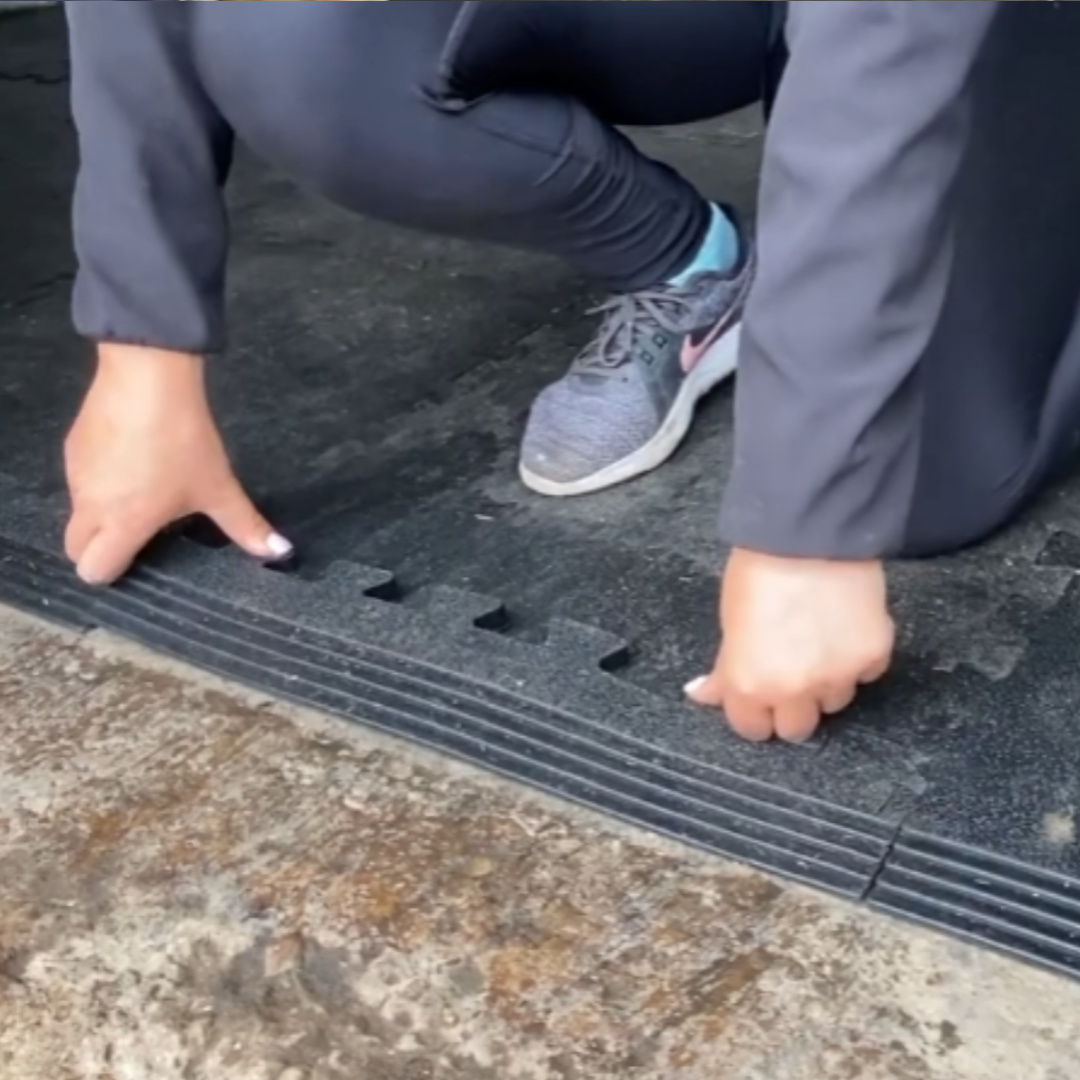
If you aren’t using tapered edge ramps you have the option of trimming the interlocks off to leave you a straight edge.
For finishing off at other walls/fixed points you can use a utility knife as described in Part 3. Be sure to leave a half inch (1.2cm) expansion gap around all walls to prevent any problems with fitting and movement of mats.
Once finished, you can add some bedding on top – generally you will not need to use as much as the mats offer a substantial comfort and warmth benefit compared to bare concrete.
Enjoy your new stable floor!
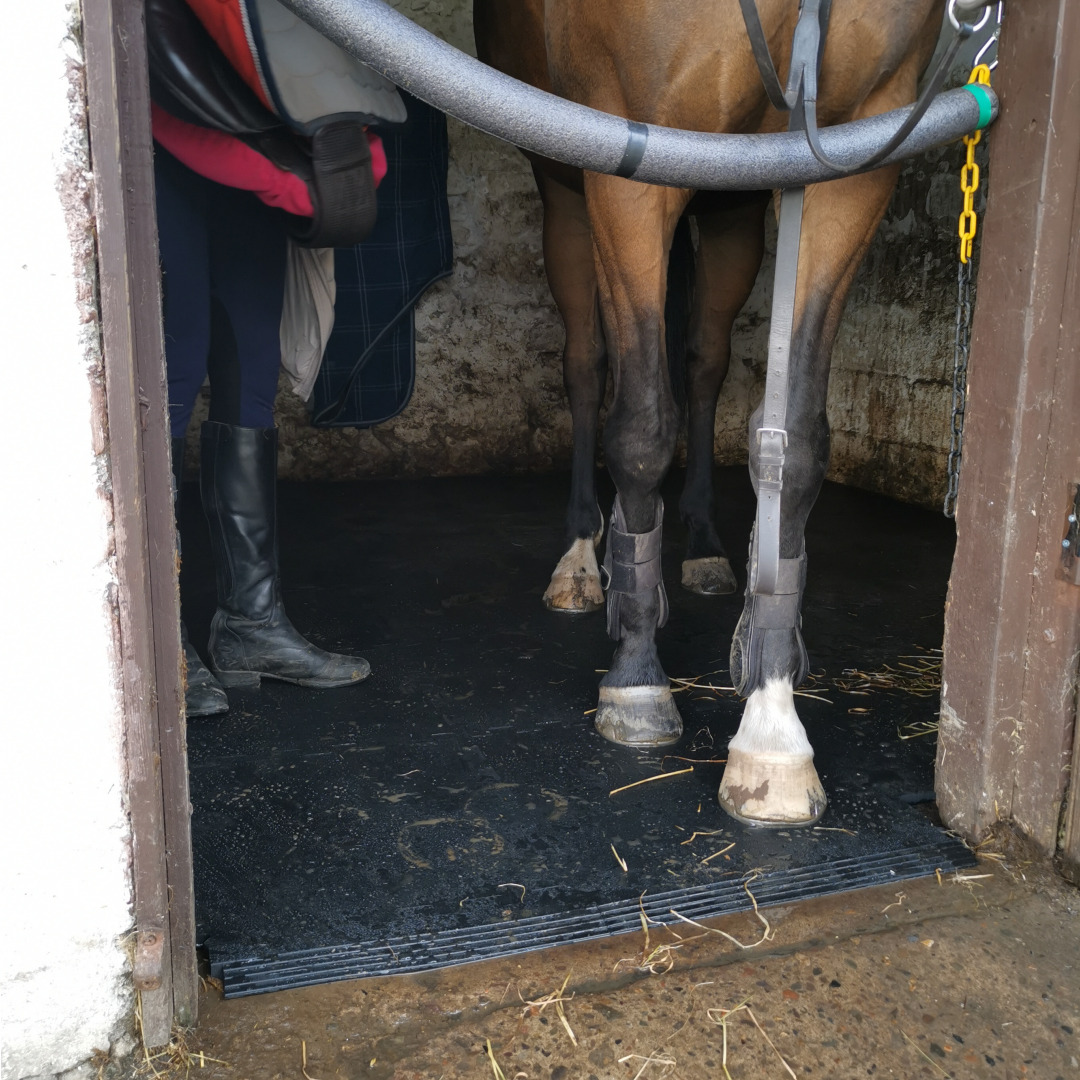
On occasions it may be necessary to temporarily remove the stable mats (cleaning etc.). In this case, we strongly recommend returning the mats to exactly the same position to ensure any mats that have adjusted are paired correctly, thus reducing the risk of problems. Marking or numbering the underside of the mats as you remove them can help to achieve this.
You can order Rubber Stable Mats from the Equifloor UK website: equifloor.co.uk or by calling 01206 390 570.
We value your privacy
We use cookies to enhance your browsing experience, serve personalised ads or content, and analyse our traffic. By clicking "Accept All", you consent to our use of cookies.
We use cookies to help you navigate efficiently and perform certain functions. You will find detailed information about all cookies under each consent category below. The cookies that are categorised as "Necessary" are stored on your browser as they are essential for enabling the basic functionalities of the site. We also use third-party cookies that help us analyse how you use this website, store your preferences, and provide the content and advertisements that are relevant to you. These cookies will only be stored in your browser with your prior consent.
You can choose to enable or disable some or all of these cookies but disabling some of them may affect your browsing experience.
Essential cookies enable basic functions and are necessary for the proper function of the website.
Google reCAPTCHA helps protect websites from spam and abuse by verifying user interactions through challenges.
Statistics cookies collect information anonymously. This information helps us understand how visitors use our website.
Google Analytics is a powerful tool that tracks and analyzes website traffic for informed marketing decisions.
Service URL: policies.google.com (opens in a new window)
Clarity is a web analytics service that tracks and reports website traffic.
Service URL: clarity.microsoft.com (opens in a new window)
SourceBuster is used by WooCommerce for order attribution based on user source.
Marketing cookies are used to follow visitors to websites. The intention is to show ads that are relevant and engaging to the individual user.
Facebook Pixel is a web analytics service that tracks and reports website traffic.
Service URL: www.facebook.com (opens in a new window)
A video-sharing platform for users to upload, view, and share videos across various genres and topics.
Service URL: www.youtube.com (opens in a new window)
You can find more information in our Cookie Policy and Privacy Policy.